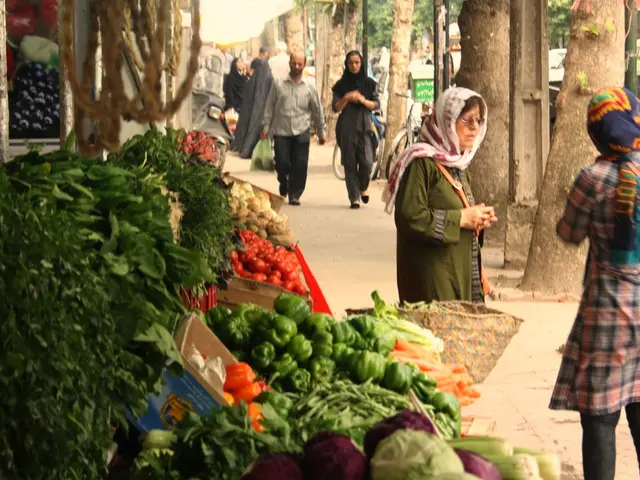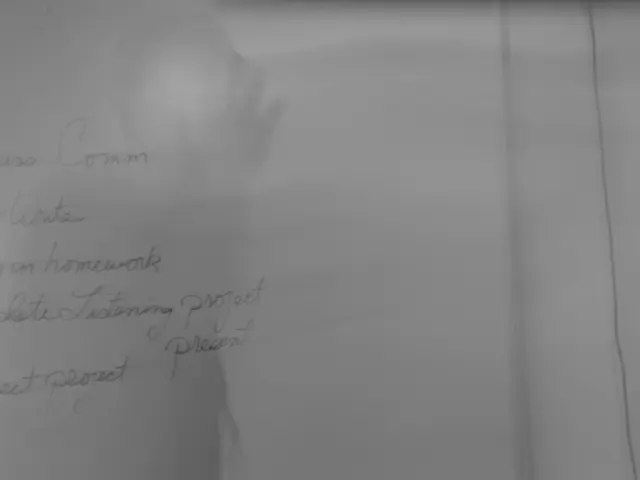Drug rehabilitation success story: Personal account of overcoming addiction, shared by a former patient at an Abu Dhabi recovery center
The National Rehabilitation Center (NRC) in Abu Dhabi is leading the way in tackling addiction as a chronic, complex health condition, rather than a crime. The centre's approach is holistic, science-driven, and compassionate, encompassing a full spectrum of care from prevention to public awareness.
At the heart of the NRC's strategy is a comprehensive care continuum. This encompasses prevention, treatment, rehabilitation, reintegration, and public awareness, reflecting a broad approach to addressing substance abuse.
The centre offers personalised, culturally sensitive treatment plans, combining medical care with psychological therapy and crucial family involvement. This approach ensures recovery is supported in a manner that is appropriate to the individual's cultural background.
Technology and innovation play a significant role at the NRC. Data analytics are used to monitor outcomes and identify trends, while AI tools are explored for early risk detection and personalised care. Automated pharmacy services are also in place to enhance patient care and staff efficiency.
Collaboration and multi-sectoral coordination are key to the NRC's success. The centre works closely with education, health sectors, law enforcement, and international partners like the WHO and UNODC. This ensures policy support, capacity building, and alignment with global best practices adapted to local needs.
The focus on social reintegration and peer support is another crucial element. Successful recovery includes restoring confidence, education or work engagement, and family and community connection. NRC facilitates peer support groups where recovered individuals help others, fostering resilience and purpose beyond treatment.
The NRC is not just a platform for care, but also for research, policy development, and advocacy. The aim is to build a drug-free society through coordinated efforts. It's important to note that treatment does not end with discharge; the NRC has designed long-term follow-up systems to help individuals avoid relapse and reintegrate into society with dignity.
Building a drug-free society is a shared responsibility and requires a coordinated, multi-sectoral effort where each partner complements the other. A powerful example of this is the story of a man who underwent rehabilitation for addiction at the NRC. Today, he is an active member of NRC's peer support group, guiding others with his lived experience.
After rehabilitation, the man regained his confidence, resumed his university studies, graduated, secured stable employment, got married, and built a life rooted in responsibility and connection. This journey was long and challenging, but he was determined to recover with his family's support.
The NRC offers interactive experiences and meaningful conversations, particularly for youngsters, as part of their prevention initiatives. Given that adolescents and young adults are at heightened risk due to peer pressure, social media, and a natural tendency to experiment and explore, these initiatives are crucial in promoting a drug-free society.
The NRC partners with various entities such as schools, universities, healthcare providers, and international agencies to strengthen prevention and recovery efforts. It is a WHO Collaborating Centre and partners with the United Nations Office on Drugs and Crime (UNODC) to contribute local insights to global efforts and adapt international best practices to local realities.
The NRC personalises treatment plans based on detailed assessments by a multidisciplinary team. Internationally recognised models like the Matrix Model, motivational interviewing, and family therapy are used, but adapted to the local culture and context. Over 60 educators and healthcare professionals were trained this year to spot early warning signs and refer cases for timely support.
Rehabilitation isn't just about treating addiction, but about reigniting purpose and belonging. Alketbi, CEO of the NRC, emphasised this, stating that the centre is focusing efforts on providing the right tools and guidance to young people to make informed, healthy choices during this crucial period, which is seen as a powerful window for prevention.
- The National Rehabilitation Center (NRC) in Abu Dhabi aims to build a drug-free society through a comprehensive, science-driven approach that includes mental health, health-and-wellness, and therapies-and-treatments.
- NRC's personalized treatment plans incorporate cultural sensitivity, addressing not just medical care but also psychological therapy and family involvement, fostering recovery appropriate to individual backgrounds.
- Technology and innovation are integral to NRC's strategy, with data analytics, AI tools, and automated pharmacy services enhancing patient care and staff efficiency.
- Collaboration with the education sector, health services, law enforcement, and international partners like the WHO and UNODC is crucial for policy support, capacity building, and alignment with global best practices.
- Peer support, social reintegration, and education or work engagement are key components of the NRC's strategy, with successful recovery measured by restored confidence, family and community connection, and personal growth.
- NRC's long-term follow-up systems aim to help individuals avoid relapse and reintegrate into society with dignity, while its prevention initiatives, such as interactive experiences for youngsters, aim to promote a drug-free society by addressing the unique risks faced by adolescents and young adults.




